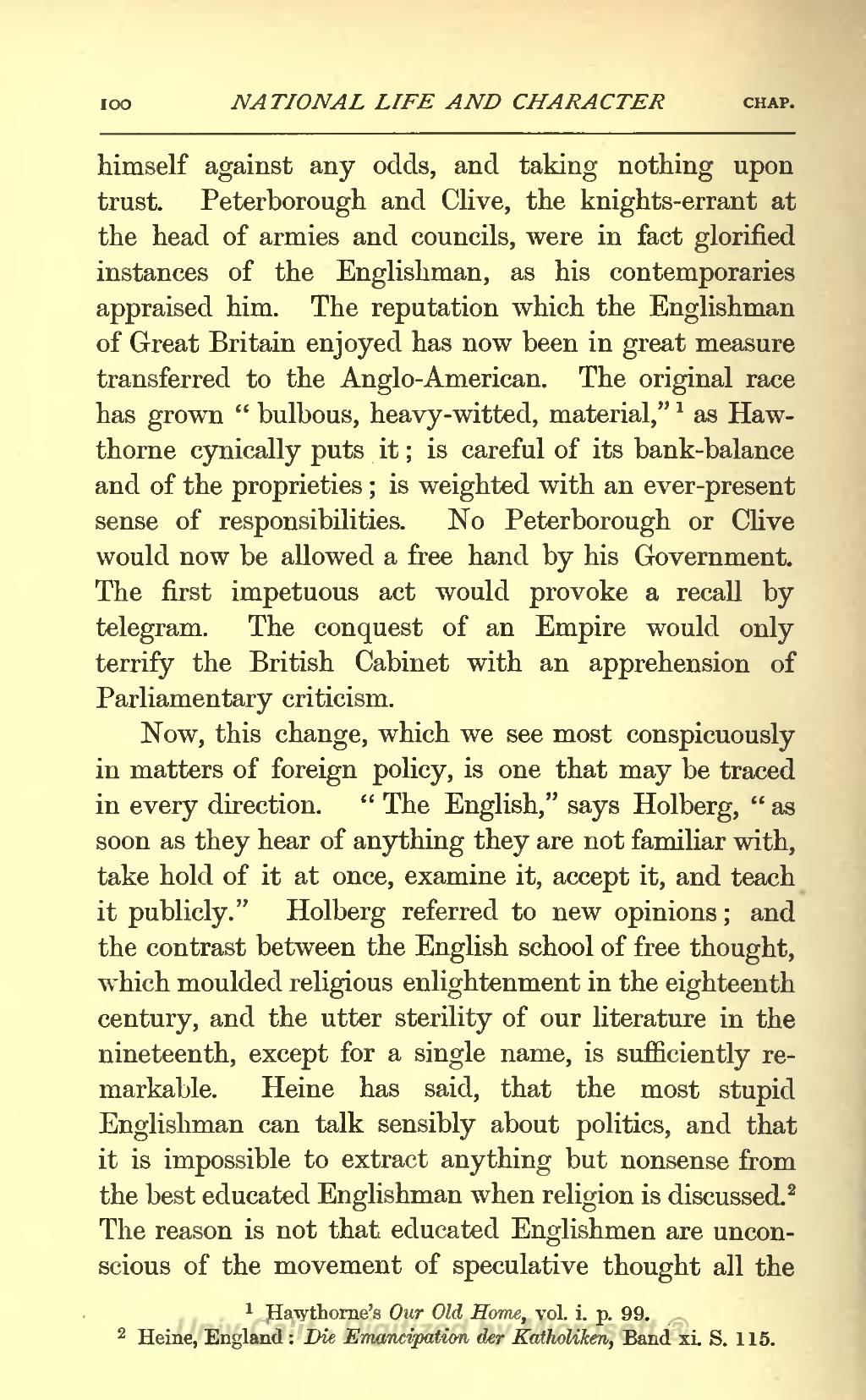himself against any odds, and taking nothing upon trust. Peterborough and Clive, the knights-errant at the head of armies and councils, were in fact glorified instances of the Englishman, as his contemporaries appraised him. The reputation which the Englishman of Great Britain enjoyed has now been in great measure transferred to the Anglo-American. The original race has grown " bulbous, heavy-witted, material,"[1] as Hawthorne cynically puts it; is careful of its bank-balance and of the proprieties; is weighted with an ever-present sense of responsibilities. No Peterborough or Clive would now be allowed a free hand by his Government. The first impetuous act would provoke a recall by telegram. The conquest of an Empire would only terrify the British Cabinet with an apprehension of Parliamentary criticism.
Now, this change, which we see most conspicuously in matters of foreign policy, is one that may be traced in every direction. "The English," says Holberg, "as soon as they hear of anything they are not familiar with, take hold of it at once, examine it, accept it, and teach it publicly." Holberg referred to new opinions; and the contrast between the English school of free thought, which moulded religious enlightenment in the eighteenth century, and the utter sterility of our literature in the nineteenth, except for a single name, is sufficiently remarkable. Heine has said, that the most stupid Englishman can talk sensibly about politics, and that it is impossible to extract anything but nonsense from [2] the best educated Englishman when religion is discussed. The reason is not that educated Englishmen are unconscious of the movement of speculative thought all the
- ↑ Hawthorne's Our Old Home, vol. i. p. 99.
- ↑ Heine, England: Die Emancipation der Katholiken, Band xi. S. 115.
